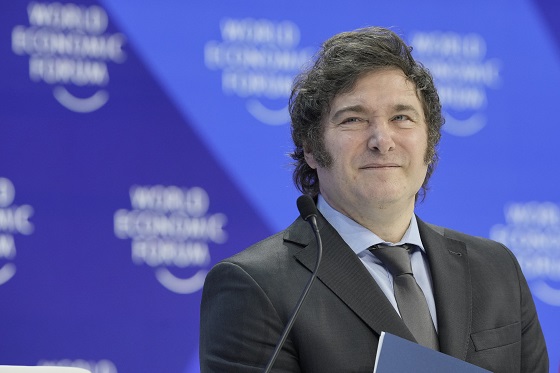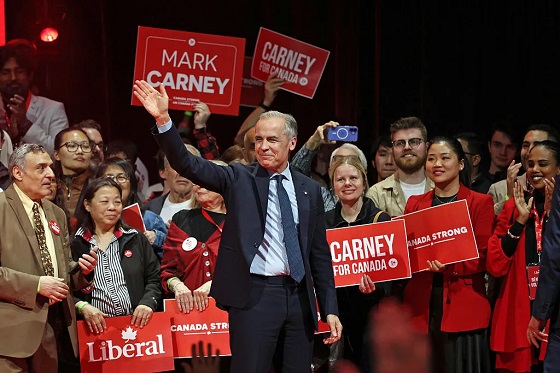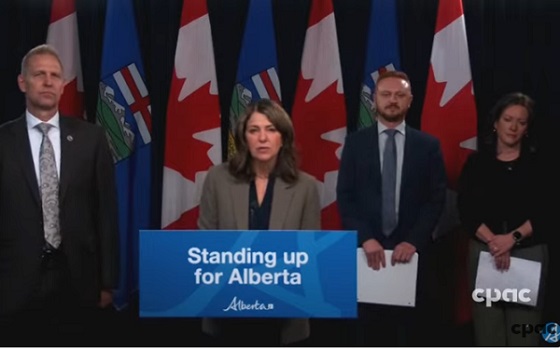Business
‘Bad Case Scenario’: Former Obama Economist Slams Kamala Harris’ Plan For Nationwide ‘Price Controls’

 From the Daily Caller News Foundation
From the Daily Caller News Foundation
Former President Barack Obama’s top economist joined the chorus of experts critiquing Vice President Kamala Harris’ proposed plan to lower costs for housing and groceries, according to The Washington Post Friday.
Jason Furman, former deputy director of the National Economic Council under Obama, expressed his concerns on Harris’ proposal to fine companies that practice “price gouging” on food and groceries, warning of the negative economic effects of the policy due to the apparent need to control prices to a degree, according to The Washington Post. Harris blamed corporate greed for the rise in prices in her speech on Friday, instead of massive government spending under the Biden administration which some economists argue has fueled inflation.
“The good case scenario is price gouging is a message, not a reality, and the bad case scenario is that this is a real proposal,” Furman told The Washington Post. “You’ll end up with bigger shortages, less supply and ultimately risk higher prices and worse outcomes for consumers if you try to enforce this in a real way, which I don’t know if they would or wouldn’t do.”
The Federal Reserve of San Francisco released research in May showing that corporate greed is not the main driver of inflation, saying that the price hikes seen following the COVID-19 pandemic were comparable to those seen following other economic recoveries that did not have not similar levels of inflation.
“This is economic lunacy. Price controls are a SERIOUSLY bad idea,” Samuel Gregg, Friedrich Hayek chair in economics and economic history at the American Institute for Economic Research, said on X. “They lead to shortages, severe misallocations of capital, and distort the ability to prices to signal the information we all need to make choices.”
The proposal from Harris would task the Federal Trade Commission (FTC) with handing out fines for companies that make “excessive” price hikes on groceries, the Harris campaign told The Washington Post. Price controls can initially lower prices for customers, but many economists argue that it would also “cause shortages which lead to arbitrary rationing and, over time, reduce product innovation and quality,” according to the Joint Economic Committee Republicans in 2022.
Prices have risen 19.4% since the Biden administration first took office, and grocery prices have risen 21%, according to the Federal Reserve of St. Louis (FRED).
“Harris has made a set of policy choices over the last several weeks that make it clear that the Democratic Party is committed to a pro-working-family agenda. The days of ‘What’s good for free enterprise is good for America’ are over,” Felicia Wong, president of the left-leaning think tank Roosevelt Forward, told The Washington Post.
Inflation peaked under the Biden administration at 9% in June 2022, with the rate only falling below 3% for the first time since in July. Under former President Donald Trump, prices increased just 7.8% from January 2017 to 2021, according to FRED.
Harris has also proposed the use of federal funds to forgive medical debt from healthcare providers, price caps on prescription drugs, a $25,000 subsidy for first-time home buyers and a $6,000 child tax credit for families for the first year of their child’s life, according to The Washington Post.
“The days of pivoting to the center to win on economics are over, even though there are good economic reasons to do so, especially on fiscal policy,” Bill Galston, a former Clinton aide, told The Washington Post.
Furman, the Harris campaign and Democrat economists Jay Shambaugh and Lawrence Summers did not immediately respond to the Daily Caller News Foundation’s request for comment. Democrat economist Sandra Black declined to comment.
Business
Overregulation is choking Canadian businesses, says the MEI

 From the Montreal Economic Institute
From the Montreal Economic Institute
The federal government’s growing regulatory burden on businesses is holding Canada back and must be urgently reviewed, argues a new publication from the MEI released this morning.
“Regulation creep is a real thing, and Ottawa has been fuelling it for decades,” says Krystle Wittevrongel, director of research at the MEI and coauthor of the Viewpoint. “Regulations are passed but rarely reviewed, making it burdensome to run a business, or even too costly to get started.”
Between 2006 and 2021, the number of federal regulatory requirements in Canada rose by 37 per cent, from 234,200 to 320,900. This is estimated to have reduced real GDP growth by 1.7 percentage points, employment growth by 1.3 percentage points, and labour productivity by 0.4 percentage points, according to recent Statistics Canada data.
Small businesses are disproportionately impacted by the proliferation of new regulations.
In 2024, firms with fewer than five employees pay over $10,200 per employee in regulatory and red tape compliance costs, compared to roughly $1,400 per employee for businesses with 100 or more employees, according to data from the Canadian Federation of Independent Business.
Overall, Canadian businesses spend 768 million hours a year on compliance, which is equivalent to almost 394,000 full-time jobs. The costs to the economy in 2024 alone were over $51.5 billion.
It is hardly surprising in this context that entrepreneurship in Canada is on the decline. In the year 2000, 3 out of every 1,000 Canadians started a business. By 2022, that rate had fallen to just 1.3, representing a nearly 57 per cent drop since 2000.
The impact of regulation in particular is real: had Ottawa maintained the number of regulations at 2006 levels, Canada would have seen about 10 per cent more business start-ups in 2021, according to Statistics Canada.
The MEI researcher proposes a practical way to reevaluate the necessity of these regulations, applying a model based on the Chrétien government’s 1995 Program Review.
In the 1990s, the federal government launched a review process aimed at reducing federal spending. Over the course of two years, it successfully eliminated $12 billion in federal spending, a reduction of 9.7 per cent, and restored fiscal balance.
A similar approach applied to regulations could help identify rules that are outdated, duplicative, or unjustified.
The publication outlines six key questions to evaluate existing or proposed regulations:
- What is the purpose of the regulation?
- Does it serve the public interest?
- What is the role of the federal government and is its intervention necessary?
- What is the expected economic cost of the regulation?
- Is there a less costly or intrusive way to solve the problem the regulation seeks to address?
- Is there a net benefit?
According to OECD projections, Canada is expected to experience the lowest GDP per capita growth among advanced economies through 2060.
“Canada has just lived through a decade marked by weak growth, stagnant wages, and declining prosperity,” says Ms. Wittevrongel. “If policymakers are serious about reversing this trend, they must start by asking whether existing regulations are doing more harm than good.”
The MEI Viewpoint is available here.
* * *
The MEI is an independent public policy think tank with offices in Montreal, Ottawa, and Calgary. Through its publications, media appearances, and advisory services to policymakers, the MEI stimulates public policy debate and reforms based on sound economics and entrepreneurship.
Business
Canada urgently needs a watchdog for government waste

This article supplied by Troy Media.
 By Ian Madsen
By Ian Madsen
From overstaffed departments to subsidy giveaways, Canadians are paying a high price for government excess
Canada’s federal spending is growing, deficits are mounting, and waste is going unchecked. As governments look for ways to control costs, some experts say Canada needs a dedicated agency to root out inefficiency—before it’s too late
Not all the Trump administration’s policies are dubious. One is very good, in theory at least: the Department of Government Efficiency. While that
term could be an oxymoron, like ‘political wisdom,’ if DOGE proves useful, a Canadian version might be, too.
DOGE aims to identify wasteful, duplicative, unnecessary or destructive government programs and replace outdated data systems. It also seeks to
lower overall costs and ensure mechanisms are in place to evaluate proposed programs for effectiveness and value for money. This can, and often does, involve eliminating departments and, eventually, thousands of jobs. Some new roles within DOGE may need to become permanent.
The goal in the U.S. is to reduce annual operating costs and ensure government spending grows more slowly than revenues. Washington’s spending has exploded in recent years. The U.S. federal deficit now exceeds six per cent of gross domestic product. According to the U.S. Treasury Department, the cost of servicing that debt is rising at an unsustainable rate.
Canada’s latest budget deficit of $61.9 billion in fiscal 2023-24 amounts to about two per cent of GDP—less alarming than our neighbour’s situation, but still significant. It adds to the federal debt of $1.236 trillion, about 41 per cent of our estimated $3 trillion GDP. Ottawa’s public accounts show expenses at 17.8 per cent of GDP, up from about 14 per cent just eight years ago. Interest on the growing debt accounted for 9.1 per cent of
revenues in the most recent fiscal year, up from five per cent just two years ago.
The Canadian Taxpayers Federation (CTF) consistently highlights dubious spending, outright waste and extravagant programs: “$30 billion in subsidies to multinational corporations like Honda, Volkswagen, Stellantis and Northvolt. Federal corporate subsidies totalled $11.2 billion in 2022 alone. Shutting down the federal government’s seven regional development agencies would save taxpayers an estimated $1.5 billion annually.”
The CTF also noted that Ottawa hired 108,000 additional staff over the past eight years, at an average annual cost of more than $125,000 each. Hiring based on population growth alone would have added just 35,500 staff, saving about $9 billion annually. The scale of waste is staggering. Canada Post, the CBC and Via Rail collectively lose more than $5 billion a year. For reference, $1 billion could buy Toyota RAV4s for over 25,600 families.
Ottawa also duplicates functions handled by provincial governments, often stepping into areas of constitutional provincial jurisdiction. Shifting federal programs in health, education, environment and welfare to the provinces could save many more billions annually. Poor infrastructure decisions have also cost Canadians dearly—most notably the $33.4 billion blown on what should have been a relatively simple expansion of the Trans Mountain pipeline. Better project management and staffing could have prevented that disaster. Federal IT systems are another money pit, as shown by the $4-billion Phoenix payroll debacle. Then there’s the Green Slush Fund, which misallocated nearly $900 million.
Even more worrying, the rapidly expanding Old Age Supplement and Guaranteed Income Security programs are unfunded, unlike the Canada Pension Plan. Their combined cost is already roughly equal to the federal deficit and could soon become unmanageable.
Canada is sleepwalking toward financial ruin. A Canadian version of DOGE—Canada Accountability, Efficiency and Transparency Team, or CAETT—is urgently needed. The Office of the Auditor General does an admirable job identifying waste and poor performance, but it’s not proactive and lacks enforcement powers. At present, there is no mechanism in place to evaluate or eliminate ineffective programs. CAETT could fill that gap and help secure a prosperous future for Canadians.
Ian Madsen is a senior policy analyst at the Frontier Centre for Public Policy.
The views, opinions, and positions expressed by our columnists and contributors are solely their own and do not necessarily reflect those of our publication.
© Troy Media
Troy Media empowers Canadian community news outlets by providing independent, insightful analysis and commentary. Our mission is to support local media in helping Canadians stay informed and engaged by delivering reliable content that strengthens community connections and deepens understanding across the country.
-

 Business2 days ago
Business2 days agoChina’s economy takes a hit as factories experience sharp decline in orders following Trump tariffs
-

 Business2 days ago
Business2 days agoTrump’s bizarre 51st state comments and implied support for Carney were simply a ploy to blow up trilateral trade pact
-

 Agriculture1 day ago
Agriculture1 day agoLiberal win puts Canada’s farmers and food supply at risk
-

 International2 days ago
International2 days agoJavier Millei declassifies 1850+ files on Nazi leaders in Argentina
-

 COVID-192 days ago
COVID-192 days agoStudy finds Pfizer COVID vaccine poses 37% greater mortality risk than Moderna
-

 Alberta1 day ago
Alberta1 day agoAlberta’s future in Canada depends on Carney’s greatest fear: Trump or Climate Change
-

 International1 day ago
International1 day agoNigeria, 3 other African countries are deadliest for Christians: report
-

 Alberta1 day ago
Alberta1 day agoIt’s On! Alberta Challenging Liberals Unconstitutional and Destructive Net-Zero Legislation





